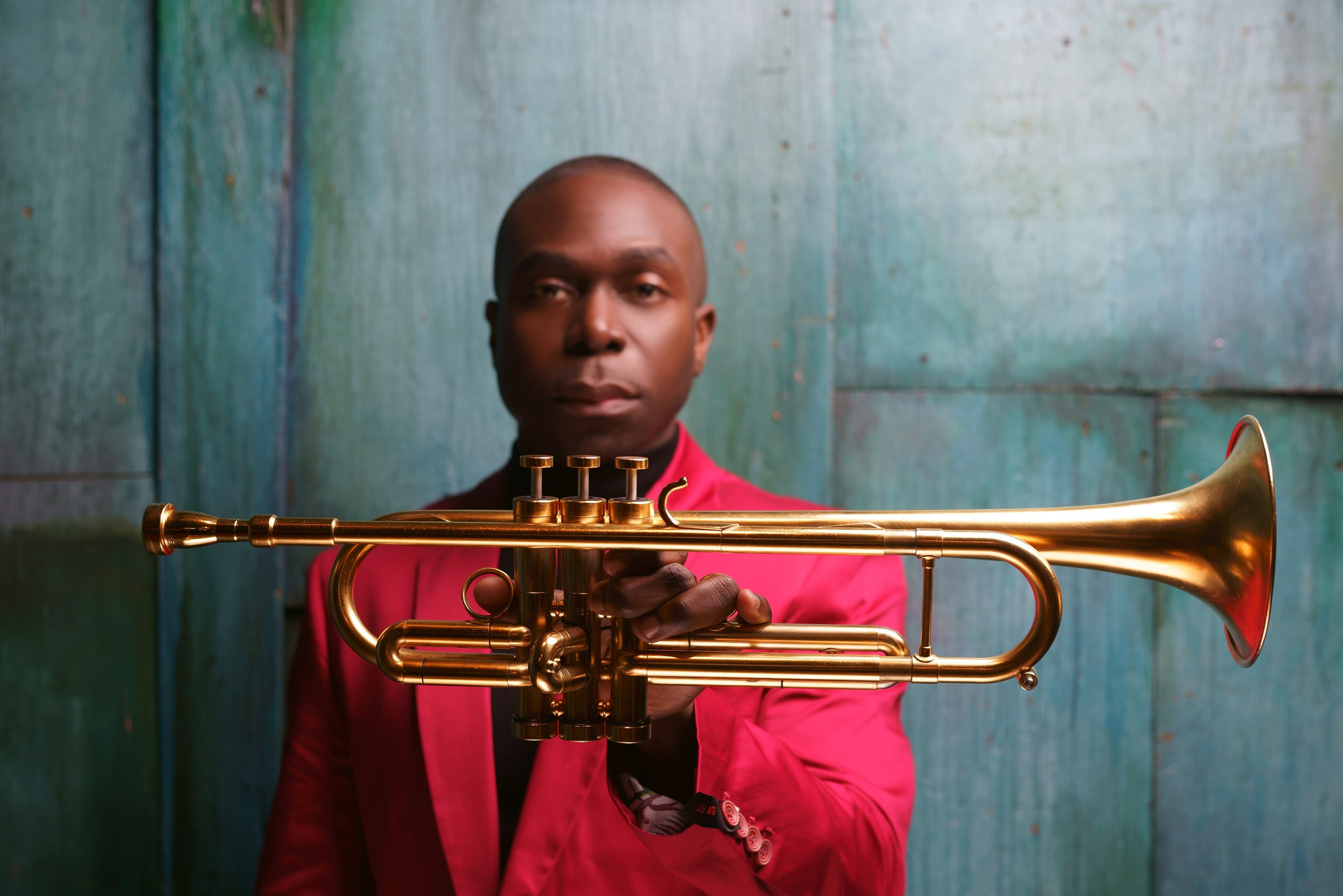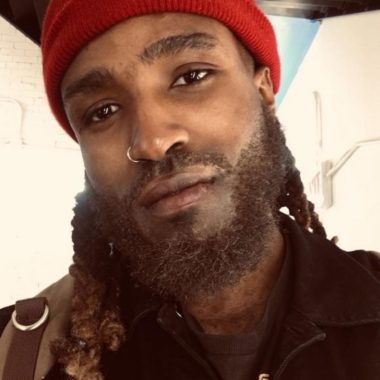Grammy award-winning trumpeter Nabaté Isles is back with a new album, En Motion. His career boasts performances at the White House and collaborations with legends like Mos Def (Yasiin Bey), Jimmy Owens, and Jill Scott. And yes, Nabaté is still hungry to create and inspire us all to move.
My interview with the incredibly talented Nabaté Isles below.
Roderick Thomas: Hi Nabaté, how are you?
Nabaté: Doing great, thank you.
RT: Let’s jump right in. When did you discover your musical talents?
Nabaté: To be honest, it was something I worked hard for. The true discovery was when I was twelve years old. I picked up the trumpet and started playing music from one of my idols, Louis Armstrong. I even went to a school named after him.
RT: Did you come from a musical family?
Nabaté: I’d say so, my father worked for WBI radio.
RT: Any memorable musical stories with your dad?
Nabaté: I actually played at a workshop for Jon Faddis and improvised [laughs]. My father made that happen. That was an amazing moment.
RT: Some people say Jazz is dead, but clearly that’s not the case. What is the route for a musician aspiring to be a successful Jazz trumpeter like yourself?
Nabaté: I’d say, have a vision and stick to it. The great thing about music is you grow until you make the transition. There isn’t a specific route for a trumpeter, it’s what you make it.
RT: Where do you go for inspiration?
Nabaté: So many places. I’m heavily into film and visual art. I’m very much inspired by cinema.
RT: Who’s your favorite film composer?
Nabaté: Oh that’s tough! Bernard Herman and all the Hitchcock films. Of course Quincy Jones, and most recently Nicholas Brittell. There are so many really.
RT: I love Nicholas Brittell’s compositions, Moonlight, If Beale Street, just amazing work.
Nabaté: If Beale Street! It was so good to see a James Baldwin story brought to life.
Nabaté: It’s amazing to see Black authors’ work adapted. I remember watching
Mo Betta Blues when I was younger and that was a major factor in my wanting to pursue music––watching Denzel play the trumpet.
RT: After all this time, what do you hope to accomplish with music and your new album?
Nabaté: I want to have my music out there and make people feel good.
RT: You’re clearly a cinephile. Should we expect to see film scores from you?
Nabaté: I love films! And Multimedia in general. So of course, I put my music where it makes sense and where it inspires.
RT: Do you listen to today’s popular music?
Nabaté: I love hip-hop which comes from Jazz. It’s natural for me to like different styles of music. I’m inspired by the change and evolution of music.
Even If I feel like something may not be for me at the time, music has a way of coming back to you when you need it.
RT: Let’s talk about your album En Motion and the song “Black Girl Magic.” Who was inspiring you?
Nabaté: Black girl magic is influenced by my mother, a Black woman, and my daughter who was born last year, a Black girl. I had to make this song.
RT: What was your process?
Nabaté: I wrote “Black Girl Magic” during the pandemic. It was a festive, party theme.
I talked to Badia Farha and she loved the track, and we wrote about “Black Girl Magic.”
Nabaté: Badia wrote the melody and lyrics and then we connected with the talented singer MuMu Fresh. Then Nikki Grier, who leads Sunday service with Kanye West, came on and did the vocal effects.
RT: What does your daughter think?
Nabaté: Oh my daughter loves the song, so mission accomplished!
RT: Let’s talk about the album En Motion. What do you want people to take away from this project?
Nabaté: I just want people to feel good. I wanted to share my reflections that I made during the pandemic and we deserve to dance and be authentically ourselves and happy.
RT: Nabaté, I think you’re accomplishing that goal with En Motion. Thanks for taking the time to chat with me.
Nabaté: Thank you!
Listen to En Motion now on streaming platforms.










